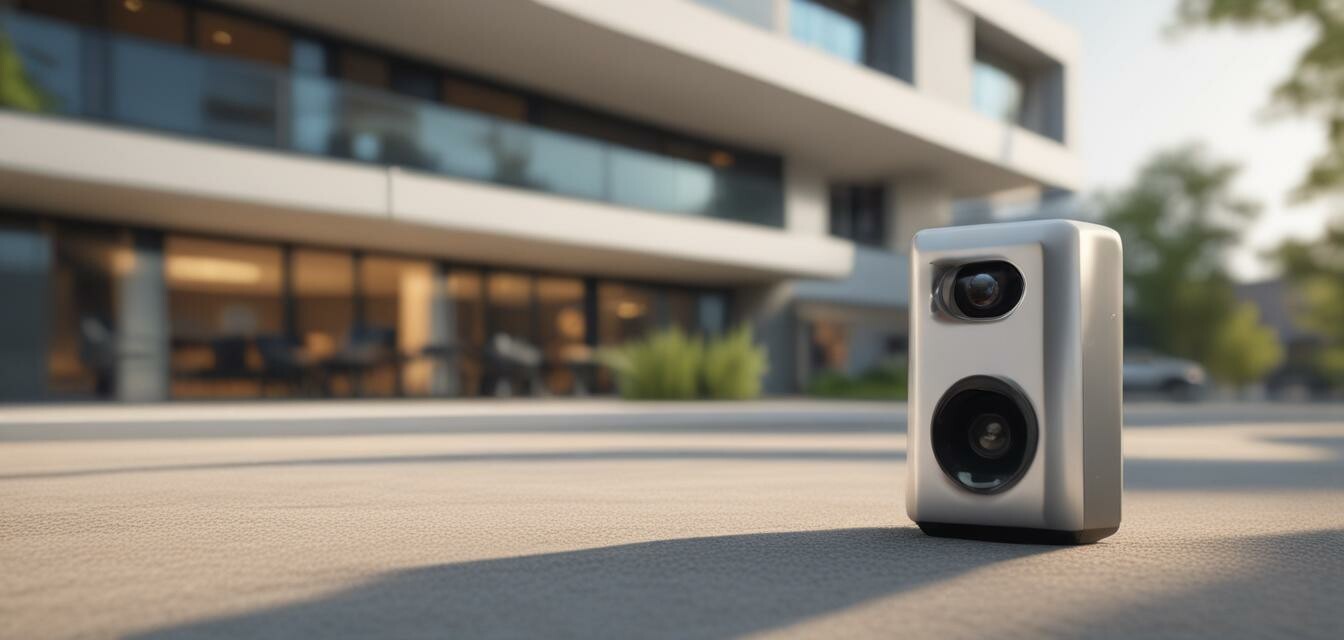
Smart Home Security
Smart Home Security: What’s in Store for 2025
Key Takeaways
- Advancements in AI and machine learning will enhance personalization in security systems.
- Integration of home automation features will streamline user experiences.
- Increased emphasis on data privacy and cybersecurity measures is expected.
- Smart surveillance cameras will feature improved video quality and night vision capabilities.
- More eco-friendly products aimed at energy conservation will emerge in the market.
The world of smart home security is continuously evolving, with each year bringing exciting innovations that improve safety and convenience for homeowners. As we look ahead to 2025, several trends are set to transform the security landscape. From advanced AI capabilities to enhanced home automation features, let's explore what the future holds for smart home security systems.
Emerging Technologies in Smart Home Security
The integration of advanced technologies is set to revolutionize the way homeowners protect their properties. Here are some key emerging technologies:
| Technology | Description |
|---|---|
| Artificial Intelligence | Utilization of AI algorithms to improve monitoring accuracy and threat detection. |
| Machine Learning | Systems learning from user behaviors to provide personalized security solutions. |
| Enhanced IoT Integration | Devices working seamlessly together to create smarter home environments. |
| Smart Surveillance Cameras | Cameras with superior video quality and the ability to analyze activity in real-time. |
The Rise of Home Automation
Home automation has gained significant traction among homeowners seeking convenience. In 2025, we anticipate a seamless integration of security systems with other household devices. Here are some notable advantages:
- Streamlined controls for lights, locks, and security cameras from one app.
- Automated routines for monitoring when residents leave or arrive.
- Enhanced security through interconnected alarm systems.
To dive deeper into home automation, check our home automation systems category.
Data Privacy and Cybersecurity Focus
As smart home security systems collect more data, the importance of data privacy and security will grow. Homeowners will need to be aware of:
- Regular software updates to ensure security vulnerabilities are patched.
- Choosing devices with strong encryption and security protocols.
- Understanding data sharing policies of device manufacturers.
For insights on best practices for keeping your data safe, visit our home security tips.
Advancements in Video Quality and Night Vision
Smart surveillance cameras are set to become more advanced. Key features to look out for include:
- 4K video resolution for crisp image clarity.
- Improved night vision capabilities for low-light conditions.
- AI-driven analytics to differentiate between normal and suspicious activities.
Explore the latest offerings in surveillance technology in our surveillance cameras category.
Eco-Friendly Innovations
With growing concerns about energy consumption, the smart home security market will likely see an influx of eco-friendly products by 2025. These innovations may include:
| Innovation | Benefit |
|---|---|
| Solar-Powered Security Cameras | Reduced electricity costs and environmental impact. |
| Energy-Efficient Sensors | Lower energy consumption, longer battery life. |
| Smart Locks with Biometric Access | Increased security without the need for physical keys. |
Preparing for What's Next in Smart Home Security
As we gear up for the advancements expected in 2025, homeowners can take steps to enhance their current security setups:
Tips for Homeowners
- Invest in adaptable security systems that can integrate future technologies.
- Stay informed about new security trends and product releases.
- Regularly review and update passwords for all smart devices.
Conclusion
The future of smart home security is bright and full of promise. With advancements in technology, an emphasis on data privacy, and exciting new products on the horizon, homeowners can look forward to significantly enhanced systems. As we move closer to 2025, being aware of these trends will help homeowners make informed decisions about their security needs.
Pros
- Enhanced security with AI and automation.
- Convenience through integrated systems.
- Increased awareness of data privacy.
- Eco-friendly options for energy conservation.
Cons
- Higher initial costs for advanced technologies.
- Potential privacy concerns with data collection.
- Need for regular updates and maintenance.